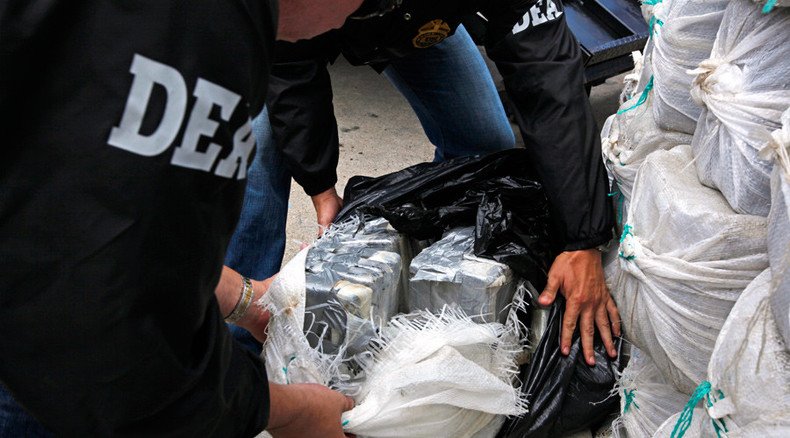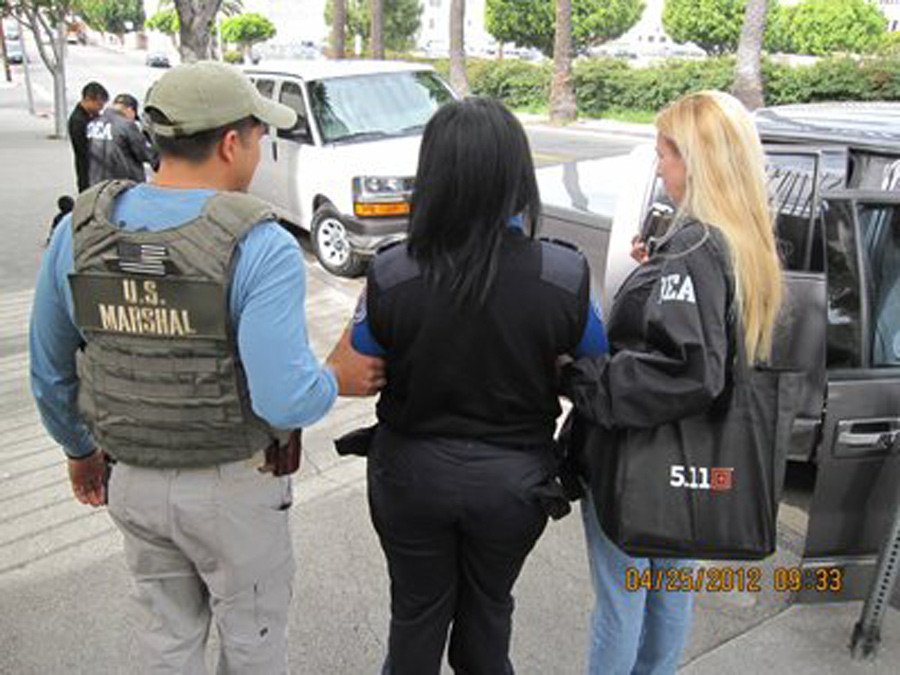Sex, drugs & lies: DEA agents stay on job despite serious misconduct, internal records show

It's next to possible to get fired from the US Drug Enforcement Administration, official records show. Since 2010 agents have escaped with warnings or brief suspensions after distributing drugs, attending sex parties, associating with criminals and falsifying records.
Of the 50 employees the DEA's Board of Professional Conduct recommended be fired following misconduct investigations opened since 2010, only 13 were eventually terminated, the records indicate. But after a federal appeals board intervened the drug agency was forced to take some of them back, it turned out.
"If we conducted an investigation, and an employee actually got terminated, I’d be surprised," a former DEA internal affairs investigator, Carl Pike, told USA Today. "I’d be truly, truly surprised. Like, wow, the system actually got this guy."

READ MORE: DEA chief quits after losing lawmakers’ confidence
The DEA has the largest international footprint of any US federal law enforcement agency, with 833 personnel permanently assigned to 86 foreign offices in 67 countries, including 459 Special Agents as of 2014. The agency has previously come under fire for failing to crack down on misconduct of its employees. The head of the DEA, Michele Leonhart, retired from her position in late April following reports that some of the agents had been involved in a series of sex parties with prostitutes in Colombia and at other locations, dating as far back as 2001. These were funded by the drug cartels they were sent to suppress. Leonhart claimed 10-day suspensions that her agents were given were the most severe punishments she could have doled out, due to civil service regulations. A House of Representatives oversight committee then issued a statement expressing no confidence in Leonhart’s leadership and called for her resignation.
The war on drugs has created corrupt DEA agents because they are ppl that fail too. More rehab less war!
— JourneysNonnie (@JourneysNonnie) 17 сентября 2015In one case, the review board recommended that an agent be fired for “distribution of drugs,” but a two-week suspension was imposed instead. According to the log, even employees had an “improper association with a criminal element” or misused government vehicles after drinking continued to stay on their job.
The DEA’s internal affairs log, obtained under the Freedom of Information Act and first revealed by USA Today, does not feature the agency’s reasons for choosing this or that kind of punishment. What it clearly shows is how rare DEA sacks its employees for misconduct. According to the log, investigators review over 200 cases each year, often only to clear the troubled agents involved. In case of a wrongdoing, the most common punishment is a temporal unpaid suspension.
"There is a culture of protection internally that has to change. If there’s a bad apple, they need to be fired, if not prosecuted, and that’s just not happening," Jason Chaffetz, R-Utah, the chairman of the House Oversight and Government Reform Committee, told USA Today. "Federal law enforcement should be held to the highest standard."
He said that the DEA and other agencies should be able to sideline rogue agents by taking away their security clearances.
'He didn’t see it coming': Outcry in US as cop tasers man 'for no reason' (VIDEO) http://t.co/15pwDuuMInpic.twitter.com/UH87eDUMUL
— RT (@RT_com) 28 сентября 2015READ MORE: DEA assigned agents who left student for dead in cell to investigate themselves
Earlier this year, officials and lawmakers called for tougher disciplinary procedures at the DEA after the agency imposed only light punishments on agents who forgot a 23-year-old San Diego student in a holding cell, leaving him without food or water for five days. Daniel Chong, who resorted to drinking his urine and, believing he would not survive, attempted to scrawl a farewell message in blood on his cell wall, later reached a $4.1 million settlement with the DEA.
DEA managers recommend firing in fewer than 6 percent of cases, according to USA Today. In some of those cases, the agency allows employees to quit.
But even when employees are actually fired, they are sometimes later reinstated by the federal Merit Systems Protection Board, the independent body that reviews federal disciplinary matters. In one case, the board blocked the DEA from firing an agent who left a voicemail for his girlfriend threatening “to give the couple's consensually made sex video” to her 8-year-old daughter as a birthday present.
“The general feeling throughout senior leadership at DEA was that it’s a ridiculous system,” James Capra, the former head of operations for the drug agency, told USA Today. “We used to joke that this guy got fired but he’s just going to get his job back.”












